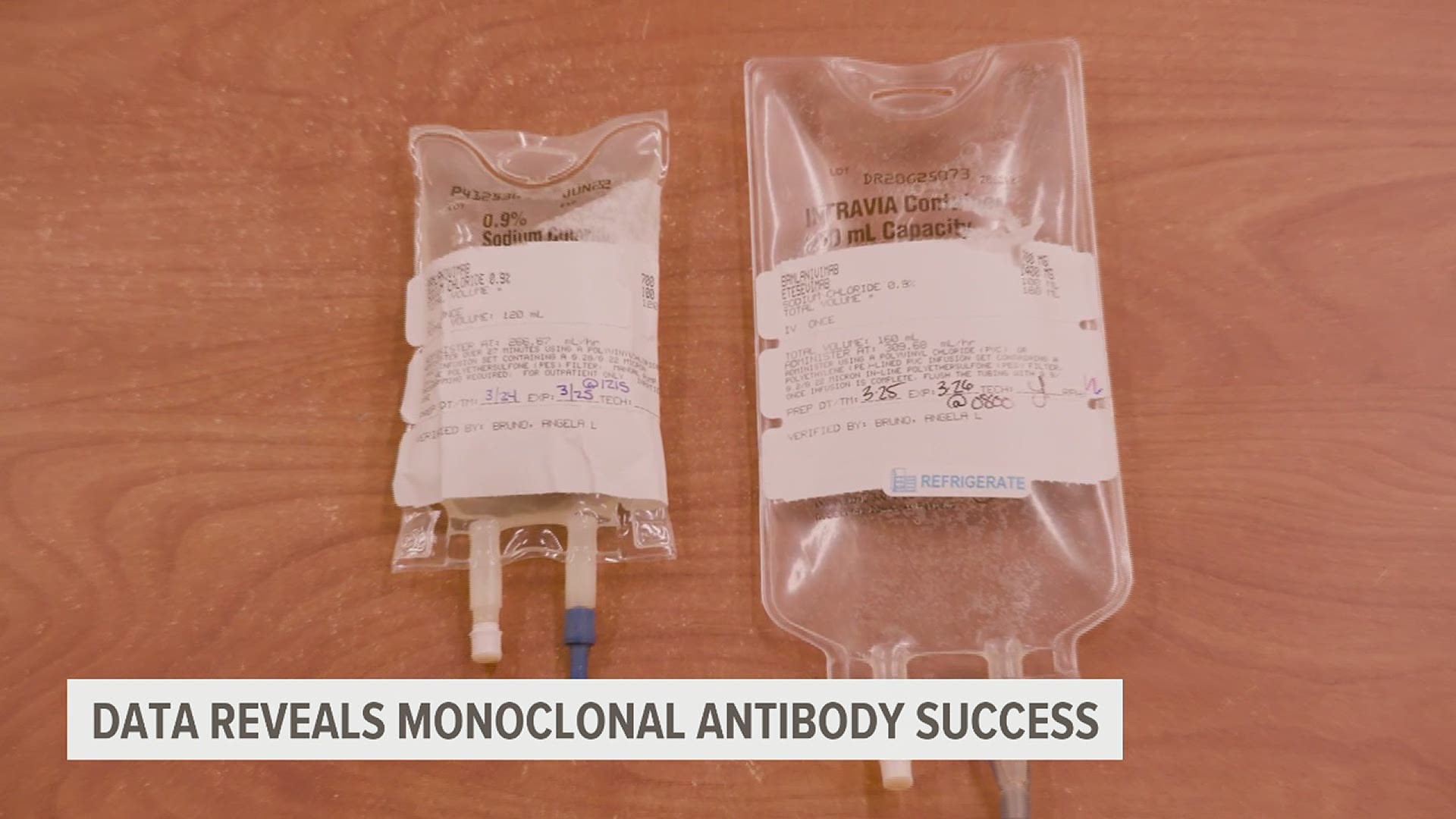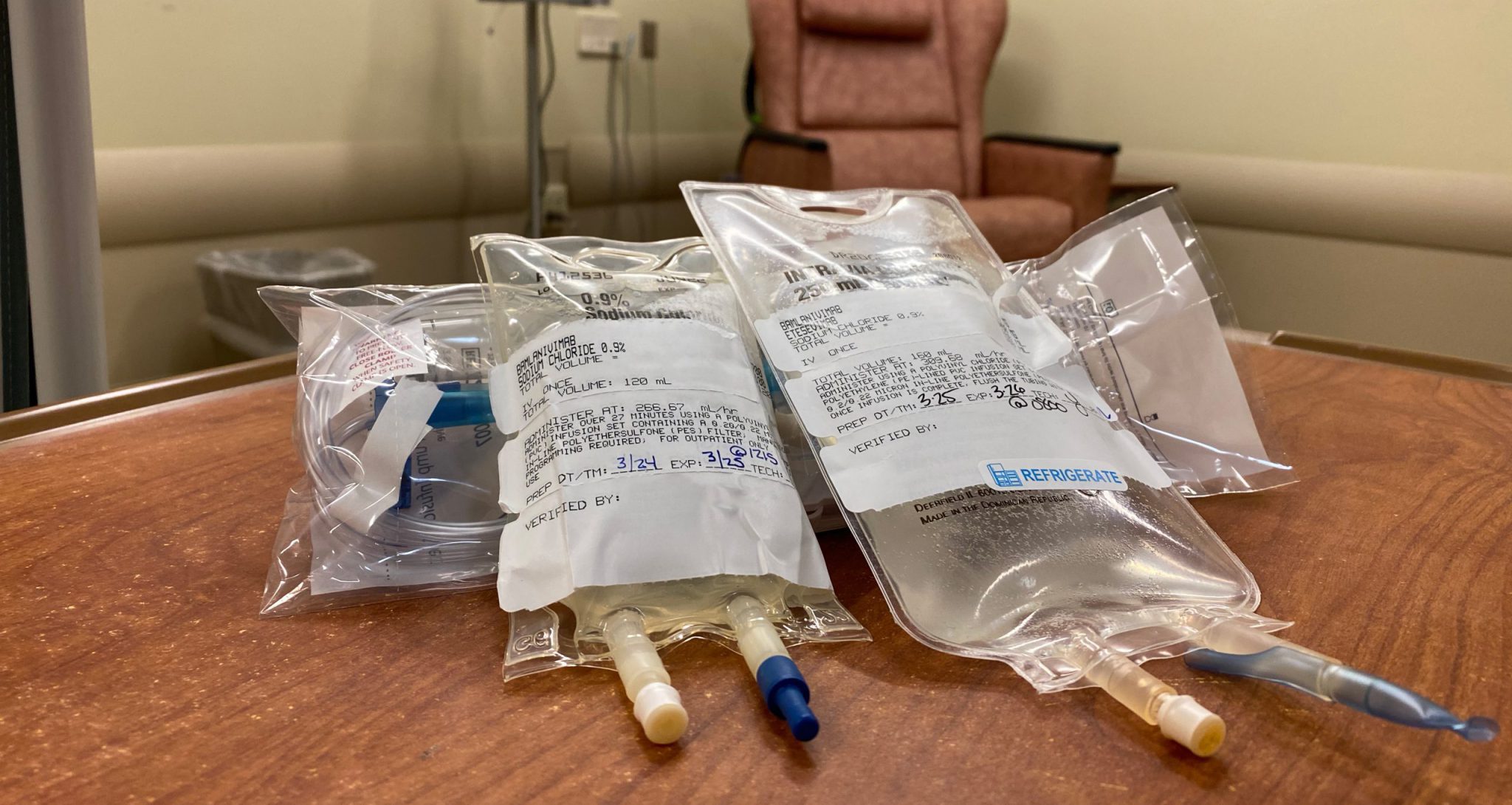LANCASTER COUNTY, Pa. — After a temporary plateau, COVID-19 cases are once again rising across the nation and in Pennsylvania.
"The current increase in COVID-19 cases nationally and in our region is driven by laxity with masking and distancing and likely driven by the emergence of COVID-19 mutations and variants," said Dr. Graham Snyder, UPMC’s medical director of infection prevention and hospital epidemiology.
While vaccination efforts are increasing, researchers with UPMC say shots cannot be the only tools used to combat COVID-19 and its variants
"Vaccines may be adaptable to changing variants, but we must have an extra layer of protection," added Dr. Snyder.
They say monoclonal antibody therapy is a reliable safeguard. UPMC research reveals patients who received monoclonal antibody therapy through an IV had their risk of hospitalization and death related to the virus cut by nearly 70%.
"The possibility that a treatment can prevent serious complications of COVID-19 would truly be transformative for this pandemic," explained Snyder.
With few allergic reactions, doctors also consider it a safe option for people.
"Only a handful have had a mild reaction at all. No patients have required hospitalization from the infusion of the antibody treatment," explained Dr. Erin McCreary, an infectious disease pharmacist. “If given early to high-risk patients, this treatment works to prevent COVID-19-related complications. We look forward to research with next-generation monoclonal antibodies and hope to continue to find safe and effective treatments for our patients.”
Eligible people include those who have tested positive for COVID-19 who are at an increased risk of developing severe illness due to age or health conditions who have not yet been admitted to the hospital.
Currently, PMC has 3 monoclonal antibody therapies available to people. However, the health system will transition to 2 in an effort to keep up with the COVID-19 variants.
"No one knows if one is better than the other," explained Dr. McCreary.
Researchers say their next step is to find out.
"We are actively collecting data to find that answer," said Dr. McCreary.
UPMC's data is from a preliminary analysis of UPMC patients who received the medication compared to similar patients who did not.
In an effort to share crucial information and save lives, UPMC and University of Pittsburgh School of Medicine physician-scientists are publishing the findings in medRxiv, a preprint journal.
UPMC's data finds the strongest effect of the monoclonal antibody therapy was seen in older patients. Those age 65 and older who received monoclonal antibodies from UPMC were nearly three times less likely to be hospitalized or die in the following month, compared to their untreated counterparts. The results were less pronounced in younger populations, but overall, more positive results were seen in those who received monoclonal antibody infusions than in those who did not.
UPMC offers the infusions at 16 of its centers: 14 in Pennsylvania and 2 in New York. Doctors say the therapy can also be brought to people's homes. To date, the therapy has been given more than 1,000 times to eligible people. They believe more people could benefit.
"Don't wait to ask about it, particularly if you're elderly or know you have serious conditions," added Dr. Snyder.
"We think there is a tremendous reservoir of people not getting his transformative breakthrough right now," said Dr. Donald Yealy, UPMC senior medical director and chair of the Department of Emergency Medicine at UPMC and the University of Pittsburgh.
Patients and providers can find out more about monoclonal antibody treatment at UPMC by visiting UPMC.com/AntibodyTreatment or calling 866-804-5251.


